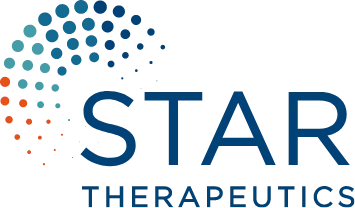The biotech has an unusual hub-and-spoke model that it believes is more efficient. Its first company was unveiled Wednesday and another is waiting in the wings. Few things are as human as gazing into the night sky. And yet, after thousands of years, we know only a little about what we’re looking at and how it all works.
Space, in that way, isn’t much different than biology. And if diseases are a vast universe, then rare disorders represent some of the least understood galaxies.
By Jacob Bell
The biotech has an unusual hub-and-spoke model that it believes is more efficient. Its first company was unveiled Wednesday and another is waiting in the wings.
Few things are as human as gazing into the night sky. And yet, after thousands of years, we know only a little about what we’re looking at and how it all works.
Space, in that way, isn’t much different than biology. And if diseases are a vast universe, then rare disorders represent some of the least understood galaxies. But Star Therapeutics, a nearly four-year-old biotechnology startup that unveiled itself Wednesday, hopes to shed more light on these disorders and, ultimately, develop treatments for them.
As its name suggests, Star will operate almost like a solar system. Whereas a traditionally structured biotech will often juggle multiple assets on its own, Star has instead opted to create offshoot companies that, while still tethered to their parent, get to keep their focus on testing a specific drug across a group of diseases.
“If these are all just programs under the same roof, at some point you may have to make some tough decisions and prioritize one over another,” said Adam Rosenthal, Star’s founder and CEO. “Putting them in their own company that’s entirely focused on that area of biology, even though you’re going after many different diseases for each program, allows you to fully explore the potential.”
In addition to its own public debut, Star disclosed Wednesday the launch of its first company, Electra Therapeutics, which has raised $84 million through a Series B financing round led by OrbiMed Advisors and the venture capital firm Westlake Village Partners. Electra’s main drug, called ELA-026, is already in the earliest stage of human testing, where researchers are evaluating it in a rare, life-threatening immune system disorder known as secondary hemophagocytic lymphohistiocytosis, or HLH for short.
Rosenthal said the money raised will go toward developing Electra’s drug for secondary HLH and other diseases tied to the immune system. The funds will also support two programs — one focused on immunology, the other on immuno-oncology — that are both currently at the preclinical stage.
A handful of other drug startups, including Bridgebio Pharma and Centessa Pharmaceuticals, have emerged with a hub-and-spoke model similar to Star’s. Other, more established company creators, such as PureTech Health and Roivant Sciences, have also used the approach to launch multiple biotechs testing drugs across a variety of therapeutic areas.
Rare disorders have garnered more attention in recent years as pharmaceutical companies found ways to build lucrative businesses around them. While the number of treatable patients is inherently small, there’s often little, if any, market competition. Effective drugs can receive regulatory and commercial incentives, and are typically met with less pushback on price given the lack of alternative treatments.
These advantages have played a part in fueling some of the biggest deals in biotech. Rare disease drugs were at the center of Takeda’s $63 billion purchase of Shire in 2018. And last summer, AstraZeneca wrapped up a nearly $40 billion acquisition of Alexion Pharmaceuticals, a rare disease company whose research revolved around the complement system, which helps the body fight off infection.
Rosenthal saw the growing interest in rare diseases first hand in his previous role as chief business officer at True North Therapeutics, a biotech that also focused on the complement system. True North was acquired in 2017 by Bioverativ, which was then bought by the French pharmaceutical giant Sanofi for $11 billion the following year. Notably, one of True North’s medicines, Enjaymo, was cleared for the U.S. market two weeks ago as a treatment for an uncommon form of anemia.
True North also gave Rosenthal a platform to build investor connections. That network proved crucial in getting Star — and, later, Electra — off the ground, as Rosenthal initially turned to biotech financiers who he’d worked with before.
One of them was Beth Seidenberg, a former investor in True North and now a managing director at Westlake.
True North was itself a spinoff of a biotech called iPierian that was run by a similar management team and sold to Bristol Myers Squibb. Rather than go down the same road, Rosenthal and Seidenberg decided to organize their new company differently from the beginning.
“The value of this type of structure is that it gives the company and the investors a tremendous amount of flexibility,” said Seidenberg.
Alongside OrbiMed and Westlake, Electra’s latest funding round saw participation from a diverse pool of backers, including so-called crossover investors, whose support is often essential when small, private startups make the leap to the public markets.
According to Rosenthal, investors responded well to Star’s unorthodox structure. Having a series of companies offers more options, he said, as each can pursue its own financing and business development strategies.
Rosenthal argues that Star’s approach also lowers some of the inherent risks of drug development. “I think that was very appealing to folks,” he said. “If [a drug] doesn’t work in one disease, it doesn’t kill the program. And if it works in more than one disease, there’s significant upside.”
Electra and its work on ELA-026 will be the first test of Star’s strategy. It won’t be the only one, though, as Rosenthal said another Star company is “waiting in the wings.”
While more details will be revealed later, Rosenthal said that company’s research revolves around blood disorders, and that it has an experimental drug in preclinical testing.
And despite Star’s focus on rare diseases, it’s also exploring applications of its research that could apply more broadly, too. Elektra’s two preclinical programs, for example, are not in rare disease, Seidenberg said.
The recent downturn in biotech markets, however, may mean Star has a tougher time selling its vision to future investors.
For the past few years, the path to an initial public offering — one of the main ways drug startups generate returns for their early backers — has been relatively quick and simple. But enthusiasm for biotechs among public investors cooled significantly over the last six months, raising doubts about whether startups can easily price new stock offerings right now.
According to Rosenthal, part of the appeal to investors of a hub-and-spoke model is that the offshoot companies have an easier time going public. So, if the market downturn persists, it could spell trouble for Star and its counterparts. Since October, for instance, shares of Centessa have lost almost 40% of their value, while shares of BridgeBio have tumbled more than 80% on the heels of a disappointing clinical trial failure.
Rosenthal acknowledges that the weakening biotech market is something Star is “definitely conscious of” and trying to keep on top of, “given the options that might be there or limited.”
Star and Electra, though, will have enough of a runway to get started. “It’s tough to take a company public now,” said Seidenberg. “But it was not difficult to pull the financing together for Electra, spin it off separately and have the investors who are already committed to Star put additional money in to give Electra its own lifespan.”

